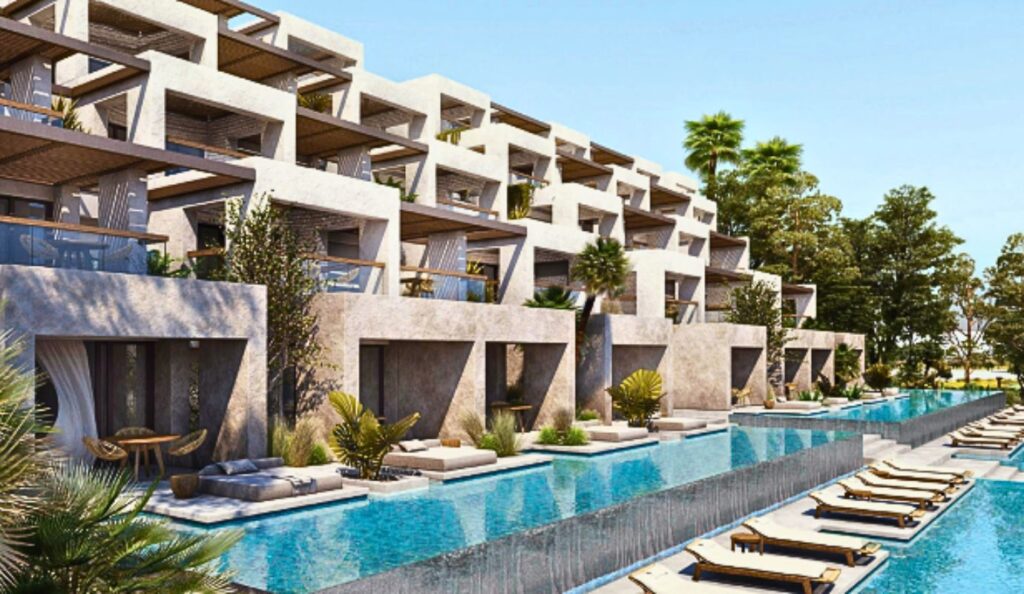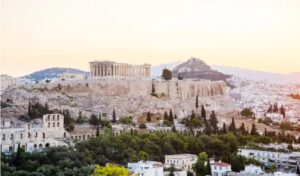The summer tourism season is at its peak and the world’s largest hotel groups have just revealed their second quarter 2025 performance results. These results aren’t just numbers – they’re signals, both positive and warning, about how the global hospitality map is being shaped and what position Greece occupies within it.
With revenues exceeding expectations, billion-dollar investments and aggressive development plans, Hilton, Marriott, Accor and Hyatt demonstrate that our country isn’t simply “just another market,” but a strategic hub for luxury and lifestyle brands
Read: Hotels: Price increases in Greece – New data on occupancy and accommodation costs
Hotel giants voting “Greece” with billion-dollar investments – The historic “Hilton” case
Hilton recorded second quarter revenues of $3.14 billion (+6.3% compared to last year) and earnings per share of $2.2, exceeding forecasts. Despite pressures in the US, the picture in Greece is diametrically opposite: the group is in a phase of rapid expansion, with 50 hotels – 36 of them under the Small Luxury Hotels of the World™ brand. The openings of “Conrad Athens The Ilisian” and “ÉRA Hotel Heraklion” in 2026 further strengthen Hilton’s dominance in the country. With investments from Athens to the Ionian Islands, the message is clear: Greece constitutes a key “battleground” for the luxury market.
Marriott exceeds expectations and invests in Crete with luxury resort
Marriott exceeded profitability forecasts, although it limited its RevPAR (revenue per available room) growth forecast for 2025, due to fatigue in North America. In Europe, the Middle East and Africa, however, the picture is upward (+5% RevPAR), while in Asia-Pacific the increase reaches 9%. Crete enters its luxury destinations portfolio with the “JW Marriott Crete Resort and Spa.” The company, with 270 new luxury units in its global pipeline, views Greece as a high-priority market.
Accor strengthens its presence with luxury projects
With a network of 5,740 hotels and nearly 855,000 rooms, Accor presented revenue growth of 5.1% and EBITDA of 13.4% in the first half. Its luxury & lifestyle brands recorded a 7% increase in RevPAR. In Greece, the group is launching seven new hotels within the next three years – from “MGallery Chania,” a former soap factory, to “Elatos Resort” on Parnassos under the Emblems brand. Occupancy rates reach historic highs, with Athens recording 82% for “MGallery,” the top performance in the global network.
Hyatt: New five-star resort in Paros in 2026
Hyatt is in a phase of strategic transformation. After years as a “heavy” real estate investor, it’s converting to an asset-light brand operator, targeting 90% of its profits to come from franchise fees by 2027. The recent sale of 15 resorts to Tortuga Resorts for $2 billion – just days after acquiring them – shows how quickly the company is moving to free up capital and invest in development.
In Greece, Hyatt is already strengthening its footprint with a presence that includes “Grand Hyatt Athens,” “Hyatt Regency Thessaloniki,” “AluaSoul Zakynthos,” “Dreams Corfu Resort & Spa,” “Magma Resort Santorini” and “Zoëtry Halkidiki.” The big news, however, is the “landing” in Paros in 2026, with the arrival of “Destination by Hyatt.”
The new five-star resort being developed by Reground – a subsidiary of construction company ParostecC – will be managed by Swot Hospitality, bringing a combination of international standards, refined design and authentic Cycladic hospitality. Hyatt’s strategy for development in Mediterranean resort destinations thus finds an ideal “bridgehead” in Greece, with Paros functioning as a gateway for further expansion to high-end island locations.
Greece at the center of international tourism strategy
The financial data and strategic moves of the four giants send strong messages about Greece: The country is moving up a category, consolidating its position as a premium destination. Asset-light models enable more flexible and rapid development, bringing more brands in search of high-value locations. The presence of major names functions as a vote of confidence, even in an environment of international instability. The challenge for the Greek tourism industry is to capitalize on this momentum, maintaining high standards, strong local identity and sustainable development. Because when the world’s biggest players invest in your “field,” the ball is at your feet.
Published in MoneyPro of Parapolitika




